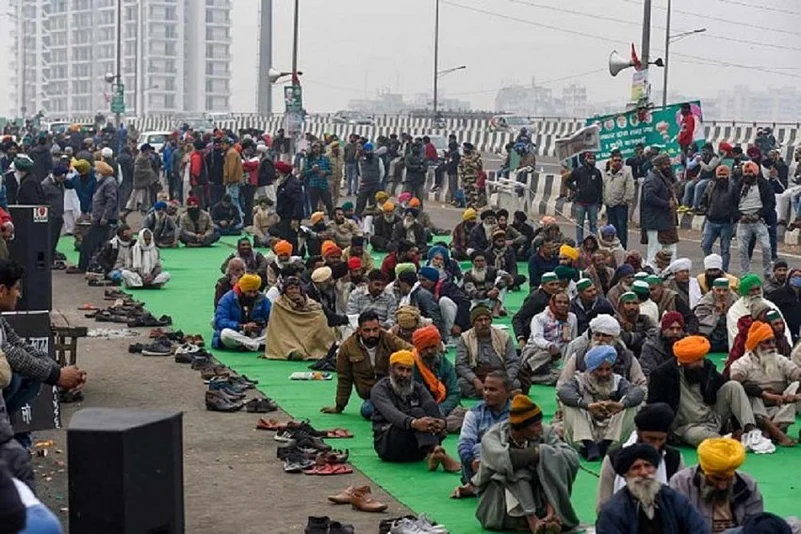Farmer leaders have decided to step up their protest through greater interaction with panchayats or village bodies to garner more support for their demand to repeal the three farm laws and to make payment of Minimum Support Price (MSP) mandatory on all buyers.
Around a dozen mahapanchayats have been held so far mostly in Haryana and western Uttar Pradesh, where the large gathering of villagers have been made aware that while the government has been paying MSP for government procurement of mostly wheat and paddy, this has been benefitting hardly 10-15 percent farmers in a few states.
While the government, including the prime minister, has promised to continue MSP “the reality is that there has been no attempt to address our demand for making MSP mandatory for purchases by even private parties. As it is, only a small percentage of farmers benefit under the current system,” says Hannan Mollah, a leader of the All Indian Kisan Sabha and former Member of Parliament.
Mollah says in the days to come, plans are to hold dozens of mahapanchayats in states like Punjab, Rajasthan, Madhya Pradesh, Maharashtra, Karnataka among others as big rallies help to build support for the cause. “We have told our state representatives to organize mahapanchayats so that there is greater rural participation and understanding of the misinformation being spread by the government,” says P Krishna Prasad, leader of All India Kisan Sabha.
On the protest agenda, over the next week is a torch or ‘mashal’ march in villages from 7 pm, for an hour or more, on February 14 in honour of farmers and soldiers killed in government action. On February 16, small public meetings are proposed across the country to make people aware of the “falsehood sought to be perpetuated through prime minister’s speeches in parliament”, says Mollah.
Further on February 18, plans have been made to stage “rail roko” or stalling movement of railway traffic for four hours from 12 noon till 4 pm. Famers have been advised against any violence citing the example of non-violent protests staged by Mahatma Gandhi.
Many of the mahapanchayats held so far have seen upward of 50,000 people attending. In some cases, the count has been around a lakh. Many of those attending these meets are realizing that it is not just the farm income that is at stake but also the incomes of those depending on the rural economy. This means, better the incomes from the farm and allied activities, the better are their chances of earning more.
Farmer leaders are not unduly perturbed by the Supreme Court observation during the dismissal of review plea in Shaheen Bagh case that the “right to protest cannot be anytime and anywhere” stating that it is the central government which has driven the farmers to the streets to seek the repeal of the farm laws that would lead to exploitation of farm sector by corporates.
“The government will find it difficult to uproot thousands of farmers who have camped all along 10-15 km from various Delhi borders,” a spokesperson for All India Kisan Morcha points out.
In over 2 months of the protests staged in the NCR and nearby areas, farmers have strived not to be provoked by any of the administration actions be it stopping of power, water or internet connectivity.





















.jpg?w=200&auto=format%2Ccompress&fit=max)




